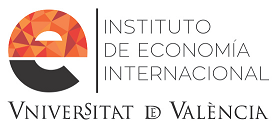El estudio, realizado por Pilar Beneito, y los investigadores del Instituto de Economía Internacional José Emilio Boscá y Javier Ferri, analiza la relación existente entre el nivel y estructura de las tasas universitarias y el desempeño académico de los estudiantes.
- Los estudiantes universitarios reaccionan ante una subida de tasas con un mayor esfuerzo que se traduce en un descenso de la tasa de repetición y mejores calificaciones.
- Los autores defienden un diseño escalonado de las tasas, con matrículas más caras para aquellos que repiten la asignatura.
Una característica interesante de este incremento de tasas es que ha sido mayor para las repeticiones de asignatura que para las primeras matrículas. Utilizando datos de una muestra de estudiantes de la Universidad de Valencia, los autores estudian el impacto de las recientes subidas de las tasas que cobra esta institución sobre (1) el número medio de veces que el estudiante repite cada asignatura, (2) la probabilidad de aprobarla en el primer intento y (3) las calificaciones medias. En el análisis se utiliza un modelo estadístico de diferencias-en-diferencias en el que sirve como grupo de control el formado por aquellos estudiantes que no se han visto afectados por el incremento de las tasas por estar exentos de las mismas (básicamente, los estudiantes de familias numerosas y los que sufren alguna discapacidad).
Más información: Fedea



